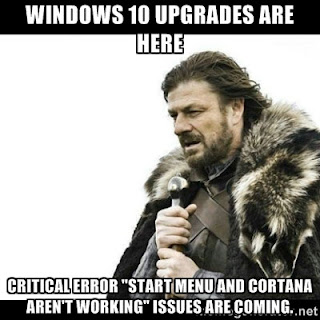When they had come together, the disciples asked Jesus, ‘Lord, is this the time when you will restore the kingdom to Israel?’ He replied, ‘It is not for you to know the times or periods that the Father has set by his own authority. But you will receive power when the Holy Spirit has come upon you; and you will be my witnesses in Jerusalem, in all Judea and Samaria, and to the ends of the earth.’ When he had said this, as they were watching, he was lifted up, and a cloud took him out of their sight. (Acts 1:6-9)
I have a fairly visual imagination and I have to say that I find that final image in the Ascension story really unhelpful. It brings to my mind Flash Gordon, or maybe James Bond in Thunderball with his jetpack: Whooooosh!
That's not an picture I find helpful or relevant to what is going on at Jesus' ascension. So maybe another way to look at it is to tell the story - briefly - of Jesus' body from beginning to end.
“In the beginning was the Word,” we are told,
“and the Word was with God and the Word was God … all things were made through him.” We start the story with Jesus not having a body at all – indeed with there not even being a universe to put a body in! God made everything with Jesus, including space and time. Where was God when he did this, if there was no space? When did he do it, if time didn't yet exist? Welcome to the head-exploding world of General Relativity – invented by God, described by Albert Einstein!
If that’s not head exploding enough, how about that Word – the one who helped create the whole space-time universe – suddenly appearing inside that universe, localised to a tiny helpless baby! Jesus now had a body, albeit one that was small and terribly fragile in the grand scheme of things. Somehow this whole impossible mystery gets glossed over every Christmas, but it's a reminder that we really shouldn't expect to be able to get our heads around everything God does -he's just too big and too wonder-full.
The baby Jesus grows up, teaches, makes friends, gets to know people, then he’s killed, on a cross. So, how can you kill God? How come the universe kept going that weekend when Jesus wasn't around? And so on; I hope you're getting the idea that if it doesn't make your brain hurt you're not really understanding the story.
Jesus’ dead body is laid in a tomb, and a rock rolled across the front. But that first Easter Sunday Jesus’ friends came to his tomb and found the rock rolled away and the tomb empty. Later they met him, on a number of different occasions, in various different places. Jesus was alive; he had risen! His body is transformed but living; death is overcome, wrongdoing forgiven, the way to life is open to all.
The risen Jesus spent some time with his friends, but then he had to go away, to be lifted up and to disappear from sight in a cloud. Where did his body go? Presumably back to where he started – somewhere outside space and time … my head’s starting to hurt again.
Maybe a better question is
why did Jesus have to go? Actually, Jesus had already told his friends this before he died (
John 16:7) – he told them that he had to go so that the Holy Spirit could come. And we are told later in the Bible that the Holy Spirit is what unites Jesus’ followers into Jesus’ new body – one body: Jesus’ hands and heart, feet and voice.
We're having a baptism at St John's tomorrow, and when we baptise the child we will welcome her into the body of Christ, which is the church. Sometimes people say that the church is people, not a building; strictly speaking I think it is more accurate to describe the church as a building made up of people.
Finally, the story of Jesus’ body ends – or maybe comes to a new beginning – when Jesus returns, when we are all raised to a renewed world of justice and peace, and when there will be, we are told, the most amazing party, at the Wedding of the Lamb!
That's a brief whistlestop tour of the story of Jesus' body. I've thrown in various brain-bending questions as I go - if you are of a scientific bent I hope you found them entertaining. However there are a couple of more important questions which I believe arise from that story:-
Firstly, where do
we fit into this story of Jesus body? Obviously if we're there at all (and I suspect we all are, somewhere) then we’re something to do with the part of the story where his body is his church, but where are we within that? Some of us are regular churchgoers – what is our place in Jesus’ body, what does it mean in our lives, day to day? But the same question is for those who do not go to church regularly, or even at all, where do you fit into Jesus’ body, and what does it mean in your life?
Tomorrow this will have special relevance in the context of the baptism of a child at St John's – everyone will be making various promises about the child and her place in that body: churchpeople, family, friends and wellwishers, parents and godparents. What is and will be the child's place within Jesus’ body, today, throughout her childhood, and beyond? And how can those present play their part in that? It’s something to ponder.
My second question is about what sort of God this is? What sort of God loves us all so much that he’ll do anything for us, even going through all this faffing about? The Word through whom the universe was made suddenly shrinking down to become a baby within that universe. The man walking the roads of Galilee and Judea, who dies on a cross for us, and is raised. But most of all perhaps, what sort of God would let the likes of us be His body? Flawed, messed up, dreadfully human people like you and me being Jesus’ body in the world? What sort of people would
you trust to look after your body (Red Dwarf example springs to mind - bonus geek points if you give the episode in the comments below)? Who is this God and why does he care so much for us?
Not questions with simple answers, perhaps, and my answers are unlikely to be the same as yours. But I do hope that you find them questions worth pondering.
I also pray that everyone attending tomorrow's baptism, on this First Sunday After Ascension, may come to know deeply the love of God who will do anything for them (and you), and that through that love they (and you) will find their/your place in Jesus’ body, here in Caversham. there in your home town, and beyond.
Finally, a cake version of the picture at the beginning, what better way to finish could there be?
 |
| The Reason for Jesus' Ascension |























